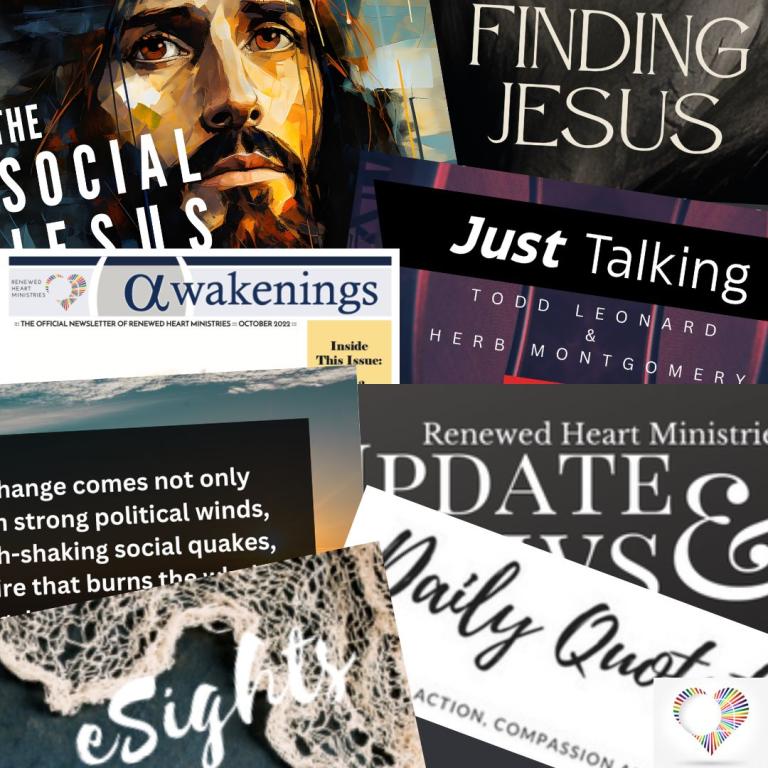
As we wrap up our consideration of the Bread of Life teaching in John chapter 6, the kind of Jesus following that is only about managing fear of death is also convenient for those in positions of power who benefit and are privileged by unjust systems and ways of shaping our societies. Death-management-only Christianity leaves unjust systems unchallenged, unchanged, and thus untouched. This is why a heaven-focused version of Christianity is often promoted by people in power. They know that a Christianity that is other-world-focused leaves this world, their world, unchanged. I’m reminded of the words of Howard Thurman: “The opposition to those who work for social change does not come only from those who are the guarantors of the status quo. Again and again it has been demonstrated that the lines are held by those whose hold on security is sure only as long as the status quo remains intact.” (Jesus and the Disinherited, p. 14)
Welcome Readers! Please subscribe to Social Jesus Here.
(Read this series from the beginning at Part 1 and Part 2.)
We would do well to remember that people don’t get beheaded like John for only showing people a path to heaven. People don’t get crucified like Jesus for only passing out tickets to heaven. People meet those ends when they become a threat to the powerful within the status quo.
All of this reminds me that a gospel of love must be engaged in our material world. A gospel of love calls us not to minimize the importance of our material world, but, rooted and grounded in our gospel of love, to work to shape our world into a just place for everyone. Believing in a gospel of love summons us to the work of compassion, not just pulling people out of the harm our society too often plunges them in, but reshaping our society in ways that also mitigate or entirely remove that harm to begin with.
I’ll close this week’s thoughts on the bread of life in John 6 with the words of Walter Rauschenbusch, a key figure in the Social Gospel movement of early 20th centuries, for your consideration. Though the Social Gospel movement was woefully silent on matters of racial justice, today we can choose to engage justice work much more inclusively, including issues of race, women’s rights, LGBTQ justice, and more.
Rauschenbusch reminds us that when we allow our Jesus following and our belief in a gospel of love to move us to engage our material world around us, this is simply “the old message of salvation, but enlarged and intensified. The individualistic gospel has taught us to see the sinfulness of every human heart and has inspired us with faith in the willingness and power of God to save every soul that comes to him. But it has not given us an adequate understanding of the sinfulness of the social order and its share in the sins of all individuals within it. It has not evoked faith in the will and power of God to redeem the permanent institutions of human society from their inherited guilt of oppression and extortion. Both our sense of sin and our faith in salvation have fallen short of the realities under its teaching. The social gospel seeks to bring humans under repentance for their collective sins and to create a more sensitive and more modern conscience. It calls on us for the faith of the old prophets who believed in the salvation of nations” (Walter Rauschenbusch, A Theology for the Social Gospel, p. 5-6).
Are you receiving all of RHM’s free resources each week?
Begin each day being inspired toward love, compassion, justice and action. Free.
Sign up at:
https://renewedheartministries.com/Contact-forms/?form=EmailSignUp
















